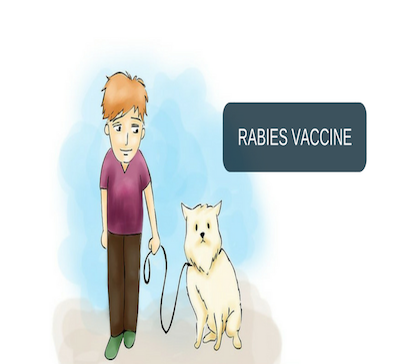Representational Image
Lack of awareness about rabies protocols exacerbates problems
New Delhi, April 30 , 2018 : Although rabies is a 100% preventable condition, South East Asia’s substantial progress in driving down the burden of the disease remains an issue till date. More than 26,000 people in the region die of rabies every year. India alone accounts for about one-third of all related deaths. Lack of awareness remains a major impediment to timely treatment.
Rabies is caused due to a virus, which is transmitted when an infected animal bites or scratches a human being. Almost 95% of the cases result from dog bites. If a person gets rabies, then death is almost certain.
Speaking about this, Padma Shri Awardee Dr K K Aggarwal, President, Heart Care Foundation of India, said, “The virus that leads to rabies attacks the nervous system. The last to get affected is the brain and therefore, those who contract the virus are aware of what is happening to them. People with rabies suffer from hydrophobia, a fear of water and can remain with a dry throat till the end. The first step to avoid contracting the disease is to wash the bite or scratch wound properly. This should be followed by the first shot of anti-rabies vaccine within the first 24 hours. Severe cuts may need an added dose of anti-rabies serum. This acts against virus before the vaccine’s effect kicks in. If a person develops symptoms of viral encephalitis following an animal bite, they should be treated as if they may have rabies. Although every bite may not cause rabies, it is important to follow this protocol as it can go a long way in avoiding potential complications.”
Bites, scratches, abrasions, or contact with animal saliva via mucous membranes or a break in the skin can transmit rabies. Rabies progresses in five distinct stages: incubation, prodrome, acute neurologic period, coma, and death.
Adding further, Dr Aggarwal, who is also the Vice President of CMAAO, said, “The fight against rabies cannot be complete without giving anti-rabies vaccination to dogs as well. For example, stray dogs in Delhi are given anti-rabies vaccine when they are caught for sterilization. However, this is just a one-time measure which may not suffice. India has a large number of stray dogs and therefore, their immunity after vaccination lasts only for a year or so making repeat vaccination a necessity. However, people should avoid harming animals for the fear of contracting this condition as not all bites can cause rabies.”
Monkey bites account for 2–21% of animal bite injuries. In India for example, two studies found monkeys to be second to dogs as the most common source of animal bite injuries. Monkey bite and scratch can also cause Rabies.
Some tips from HCFI to prevent rabies
- Vaccinate your pet at regular intervals.
- Avoid direct contact with injured or dead animals.
- Supervise your pets and look for any strange behavioral signs. They usually behave agitated.
- Stay informed about the disease, its signs, and protocols.
- Report any sick or dead animals in your vicinity.







